Boettcher to strengthen India presence with new manufacturing plant for rubber rollers
Boettcher made inroads to Indian printing consumables market by inaugurating its first chemical blending plant in India in the industrial town of Faridabad (Haryana) in December 2013. The inauguration was attended by around 200 invitees from the newspaper publishing and sheetfed and web printing press manufacturing industries. The idea to setup a manufacturing unit in India was based on the premise that customers would have an easier access to their consumable needs.
30 Jan 2014 | By Supreeth Sudhakaran
“The chemical blending plant is in continuation with Boettcher’s worldwide policy of expansion. In coming years, we have plans to strengthen our presence in the market by expanding our chemical blending plant and opening new rubber roller manufacturing unit,” said Dirk Odenbrett, director, Boettcher. Odenbrett had also mentioned that the process to setup the rubber roller plant, which started in 2013 and is now completed. The decision to setup a plant in India forms only a part of the expansion plans of the company for the region.
Prabhat Kumar, product manager at Boettcher India feels that it is the opportune moment to expand on its ‘think global act local’ philosophy. One of the critical issues faced by printers is to maintain a stable ink-water balance at high speeds. In film dampening systems, the dampening film is formed by the dosing and spreading activity of the rollers. The specific positioning of each roller in the dampening train, combined with the properties of the roller coverings in the individual positions, is the main factors in determining the quality and consistency of the dampening film. The formation of an even film can also be supported by the addition of IPA to the fountain solution.
A new awareness and legislative situation with regard to health and safety and environmental issues, along with significant and increasingly incalculable variations in the price of IPA have in recent years encouraged press operators to reduce or even eliminate the use of IPA in offset printing.
Kumar said, “Higher press speeds, reduced levels of IPA and new developments in the chemistry of offset inks place new and very particular demands on both fountain solution additives and dampening rollers in modern offset presses. When selecting the ideal fount additive and roller materials for a given application, consideration has to be given to the specific demands of each press configuration and the inks used.
Finally, the quality and economic expectations of the customers and the operating conditions of the individual printing company have to be taken into account. Boettcher has developed a broad range of dampening roller compounds to cater for all these parameters, as in today's complex global environment, the key to success is not one single concept, but the intelligent combination of the many different options to suit the individual customer's situation."
The Faridabad plant is utilised for only blending chemicals rather than manufacturing them. The chemical concentrations (raw materials) are sourced from Boettcher’s German manufacturing unit. “These concentrations are blended in the Faridabad plant. The decision to only include blending services was taken after a close analysis of the market in India and in accordance of our ‘Think global act local’ business value. Indian market is highly price conscious and importing the final products puts higher pressure on the buyer,” explained Sanders.
The company believes that in today's complex global environment, the key to success is not one single concept, but the intelligent combination of the many different options to suit the individual customer's situation. Based on this principle, in 2013, the company also launched new products for food grade packaging market that meet European standards. At Drupa 2012, Boettcher’s roller system for the dampening unit in sheetfed offset, Proaqualis, was launched. Proaqualis stands for the Boettcher dampening roller system especially for IPA-free or IPA-reduced printing.
“Proaqualis has a fluorinated rubber coating, which presents an extreme resistance against most diverse media. Due to high material costs of fluorinated rubber a 2-layer system was developed, which comprises a normal dampening roller material at the base and as surface layer a highly resistant fluorinated rubber. Apart from the swell resistance, the dynamics of the current dampening roller material are maintained, too. So far, no swelling problems have been reported on any of these rollers by users in the market. A clear advantage of the Proaqualis system also is its good resistance to polar solvents contained in usual dampening roller cleaners and UV washes,” explained Kumar.
Asked about the date of inauguration of its rubber roller manufacturing unit, Kumar said, “The rubber roller plant is now in the final leg of completion. The launch will be in different phases, starting 22 February, 2014. The phases will also comprise several seminars. The first will be organised in Mumbai, followed by other major cities in India.”


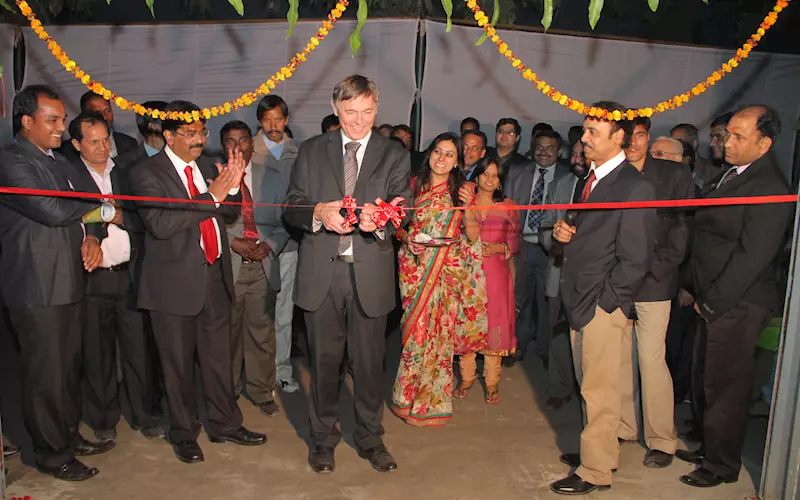
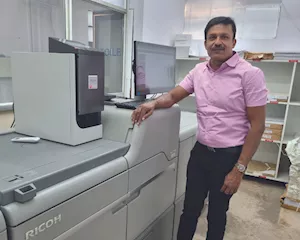
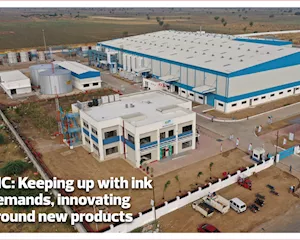
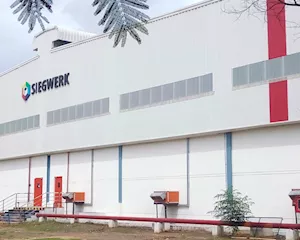

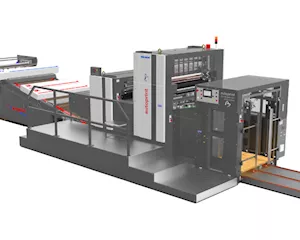






 See All
See All